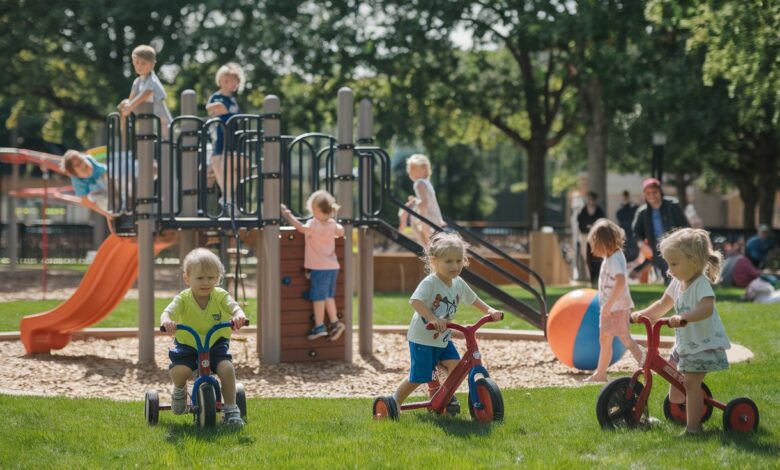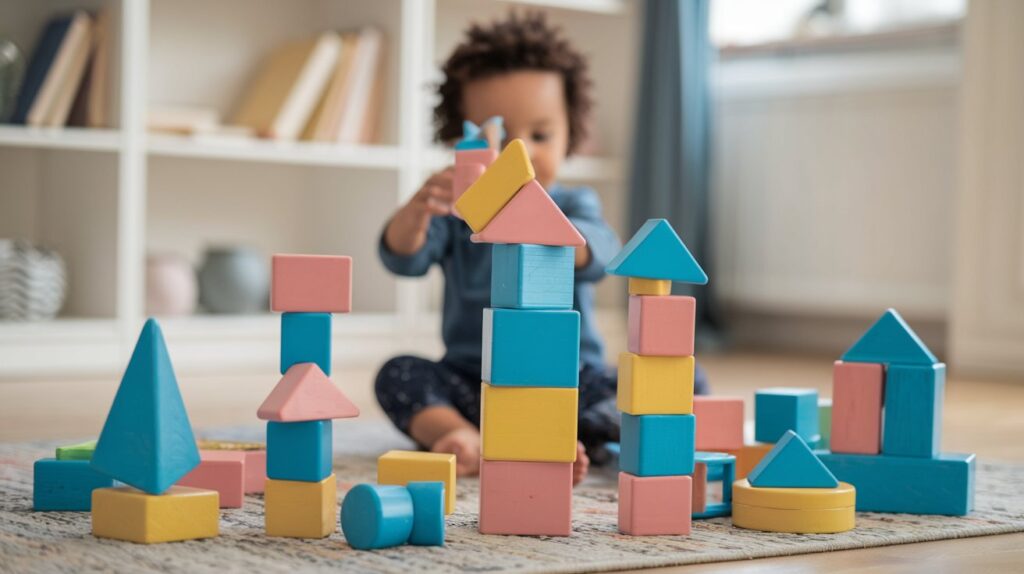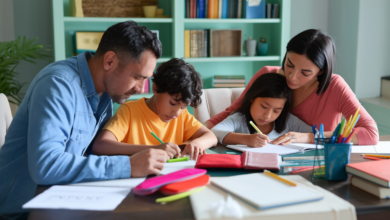The Impact of Play on Child Development: Learning Through Fun

Play is often viewed as a mere pastime, yet it serves a far deeper purpose in the world of child development. It’s not just about fun and games; it’s an essential building block for young minds. Through play, children explore their surroundings, discover new concepts, and learn vital life skills. The laughter of a child or the sound of blocks crashing can signal something profound happening under the surface. As parents and caregivers, understanding this impact can transform how we foster environments that promote growth and learning.
In today’s fast-paced world, where structured activities dominate schedules, it’s crucial to recognize the importance of play as an integral part of childhood. It offers more than entertainment; it provides opportunities for cognitive advancement, emotional resilience, social interaction, and physical fitness—all key elements in shaping well-rounded individuals. Let’s dive into how different types of play contribute to various aspects of child development while uncovering ways to encourage playful experiences for our little ones.
Types of Play and their Effects on Child Development
Play takes many forms, each contributing uniquely to a child’s growth.
Imaginative play, for instance, allows children to explore their creativity. When they dress up as superheroes or pretend to be in different worlds, they enhance problem-solving skills and foster independence.

Physical play is equally vital. Running, jumping, and climbing not only build strength but also improve coordination. It helps kids learn about risk-taking and understanding their bodies.
Social play encourages interaction with peers. Group games teach sharing, cooperation, and conflict resolution—essential skills for navigating relationships later in life.
Then there’s structured play—activities with specific goals that promote learning outcomes like teamwork in sports or strategic thinking in board games.
Conversely, unstructured play fosters spontaneity and imagination. Children learn to create their own rules while developing critical thinking abilities essential for adapting to various situations during development.
Cognitive Development through Play
Play is a powerful tool for cognitive development. When children engage in different types of play, they activate their minds and foster critical thinking skills.
Through imaginative play, kids explore new ideas and scenarios. They create stories where anything is possible, allowing them to think abstractly. This kind of creativity enhances problem-solving abilities.
Games that require strategy challenge children’s decision-making processes. Activities like puzzles or board games encourage logical reasoning and planning ahead.
Moreover, group play introduces concepts of sharing and cooperation. Children learn to negotiate rules and resolve conflicts, which sharpens their ability to understand diverse perspectives.
Hands-on activities like building blocks promote spatial awareness as well. These experiences lay the groundwork for future learning in subjects such as math and science.
Social and Emotional Growth through Play
Play is a powerful tool for social and emotional growth in children. Through play, kids learn to navigate relationships with their peers. They practice sharing, taking turns, and resolving conflicts.
Role-playing games allow children to step into different shoes. This fosters empathy as they understand various perspectives. When kids engage in cooperative play, they build teamwork skills that are vital throughout life.
Emotional expression also flourishes during these playful interactions. Children can explore feelings like joy, frustration, or sadness in a safe environment. This helps them recognize their emotions and those of others.
Moreover, play encourages self-regulation. Kids learn to manage impulses while waiting for their turn or following rules within games. These experiences cultivate resilience as they face challenges and setbacks during fun activities.
In essence, the realm of play serves as a rich landscape where social bonds strengthen and emotional intelligence blossoms naturally.
Physical Development and Motor Skills through Play
Play is an essential catalyst for physical development in children. Through various activities, kids enhance their motor skills without even realizing it. Climbing, running, and jumping not only provide joy but also strengthen muscles and improve coordination.
When children engage in play, they explore their bodies’ capabilities. Simple games like tag or hopscotch promote agility and balance. These movements are foundational for more complex physical tasks later on.
Fine motor skills benefit too. Activities such as drawing, building with blocks, or playing with clay refine hand-eye coordination and dexterity. Children learn to manipulate objects effectively as they experiment with different materials.
Moreover, outdoor play encourages a connection to nature while fostering resilience through challenges like climbing trees or riding bikes. Each experience builds confidence alongside physical strength—vital components of healthy child development that set the stage for lifelong activity habits.
Benefits of Unstructured vs Structured Playtime
Unstructured playtime allows children the freedom to explore their interests. They can create their own games, leading to greater creativity and self-expression. This type of play fosters problem-solving skills as kids navigate their own challenges.
On the other hand, structured playtime offers guided activities with specific goals. These activities can enhance focus and discipline while teaching teamwork and cooperation. Children learn valuable social skills during organized sports or group games.
Both types of play have unique advantages. Unstructured play nurtures independence, while structured settings provide opportunities for skill development in a more controlled environment. Balancing both forms ensures children benefit from varied experiences that contribute to their growth in different areas.
Encouraging a mix of unstructured and structured time enriches child development significantly, creating well-rounded individuals ready to face diverse situations in life.
Encouraging Play for Optimal Child Development
Encouraging play is vital for fostering optimal child development. Create an environment where children feel safe to explore and invent. This freedom sparks their imagination.
Provide a variety of toys and materials that stimulate creativity, from building blocks to art supplies. Each item can lead to endless possibilities in playtime adventures.
Incorporate outdoor activities into daily routines. Nature provides a rich backdrop for exploration, enhancing both physical fitness and imaginative thinking.
Engage with your child during play sessions without taking control. Ask open-ended questions that encourage them to think critically about their actions and decisions.
Celebrate the process rather than focusing on outcomes. When kids enjoy what they’re doing, they’re more likely to learn valuable skills along the way.
Make time for free play amidst structured activities. Balance fosters resilience and adaptability as children navigate different forms of interaction in their growing world.
Conclusion
Play is more than just a way to pass the time; it’s essential for child development. The various types of play—whether structured or unstructured—contribute significantly to cognitive abilities, social skills, and physical growth. Observing children at play can reveal how they learn and interact with the world around them. Encouraging diverse forms of play fosters well-rounded development.
Parents and educators should prioritize creating environments that promote playful learning. This approach not only enhances academic readiness but also nurtures emotional intelligence and interpersonal relationships in young children.
Investing time in understanding these dynamics will help caregivers support children’s growth through enjoyable experiences. Embracing play as a vital component of child development lays the foundation for lifelong learning, creativity, and resilience.



